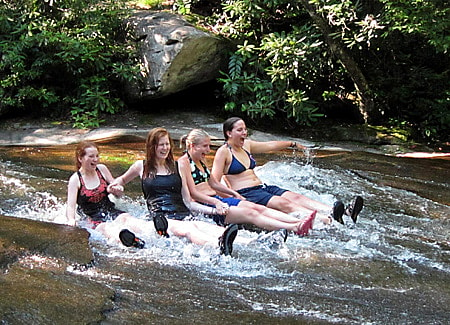Do you know about the North Carolina Children and Nature Coalition? It’s based in Asheboro, NC and is a non-profit organization dedicated to reconnecting children with nature. In response to the growing evidence documenting the benefits children gain from playing outside, benefits we have discussed here and here, this group strives to keep people informed through its web site, publications, conferences, and public policy initiatives.
Of course, Rockbrook fully supports this mission. Camp life is immersed in the natural world, offering a daily celebration of its wonders and hidden beauty. Every minute, as children newly experience nature at camp, they are inspired to grow more confident, cooperative, and compassionate.
The NC Children and Nature Coalition and other state-wide environmental education organizations have launched a campaign to establish a “Children’s Bill of Rights,” a formal recognition that children need and deserve outdoor experience. They put it like this.
Every North Carolina child should have the opportunity to discover, explore and connect with natural spaces and wild places close to home, in neighborhoods and cities in North Carolina, from the mountains to the sea by:
- Playing in a safe place outdoors,
- Camping under the stars, learning to swim, riding a bike,
- Using their senses to experience the natural world,
- Visiting a farm, seeing how food is grown, growing something,
- Exploring a stream, splashing in a wave, catching a fish, stomping in a puddle, playing in the mud,
- Hiking in a natural area and following a trail,
- Rolling in the grass, playing in the sand, climbing a tree or searching under a log,
- Sharing nature with a parent, guardian, mentor, teacher or environmental educator, and visiting a zoo, aquarium or environmental education center.
Sounds a lot like camp!


